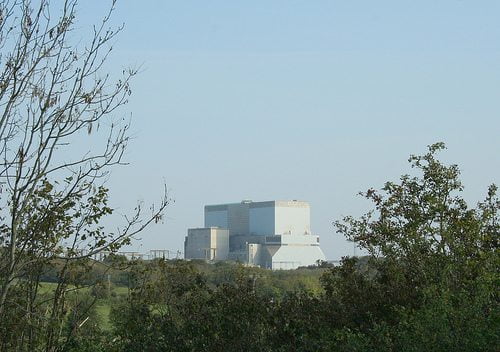

Energy
Labour announces support for EDF’s Hinkley Point C nuclear deal
The Labour party has confirmed that it will not attempt to renegotiate the government’s contract with EDF Energy that will deliver the proposed Hinkley Point C nuclear power plant, if it wins the next election.
Speaking on the BBC’s Andrew Marr Show on Sunday, the shadow energy and climate change secretary Caroline Flint said the contract agreed by the coalition government, including the price at which electricity is sold, would be supported by a Labour government.
Though she admitted the deal would be scrutinised by the public accounts committee, Flint said, “It’s not, I think, helpful for governments coming in, if you like, to say, ‘We’re going to renegotiate all contracts’.”
The government reached a deal with EDF Energy over the construction of Hinkley C – the UK’s first new nuclear power station in 25 years – in October.
As part of the agreement, Britain will pay £92.50 per megawatt hour for Hinkley’s electricity.
Its supporters say that the £16 billion facility will power up to 6m homes in the UK, create thousands of jobs and play a crucial role in helping the UK meet its decarbonisation targets.
However, critics say the deal is too generous, and a committee of MPs recently concluded that the government’s insistence that Hinkley will not be subsidised is a manipulation of the facts.
Shortly after the deal was struck, the European commission also announced that it would be investigating the project to ensure that the UK had complied with the state aid and EU competition laws.
Despite such concerns, Flint argued that the agreement still offers value for money.
“We’re supporting the contract because we believe in the long run that actually it’s important, we hope that actually this is the first of many new nuclear builds and actually as we go forward the cost will come down”, she explained.
“But it’s important to recognise that when you look at the unit cost of electricity generated by nuclear it actually works out cheaper than other forms of renewable energy.”
Such claims have been rejected by voices from inside the renewables industry.
A spokesperson from the Renewable Energy Association (REA) told Blue & Green Tomorrow, “Some renewable technologies already require lower public support levels than nuclear power, and the rapidly growing onshore wind and solar PV sectors will be able to undercut nuclear by the early 2020s, provided current learning rates can be maintained.
“This means that new wind and solar projects in the early 2020s would be cheaper than nuclear before Hinkley has generated any electricity.”
Last year, in a letter to David Cameron, the director of the renewables firm Lightsource Renewable Energy claimed that solar technology could provide the same levels of electricity as Hinkley, for a similar cost and in just two years. The proposed nuclear plant is not expected to begin operations until 2023.
The potential role of nuclear power in international efforts to cut carbon emissions from energy generation remains a cause of fierce debate.
Many environmental groups continue to argue that nuclear power stations must be discontinued, citing the consequences of accidents such as Fukushima as just cause.
Many experts conversely argue that devastating runaway climate change can only be avoided if nuclear is used alongside renewables to rapidly scale down global emissions.
Further reading:
Government ‘examining possibility’ of building 50 nuclear power plants
Nuclear power from Hinkley C may be ‘too expensive’
New Hinkley nuclear plant to be scrutinised by EU commission
Climate scientists: nuclear power vital in climate change fight
Industry could build solar equivalent of Hinkley in two years, firm tells PM


 Environment12 months ago
Environment12 months agoAre Polymer Banknotes: an Eco-Friendly Trend or a Groundswell?

 Features11 months ago
Features11 months agoEco-Friendly Cryptocurrencies: Sustainable Investment Choices

 Features12 months ago
Features12 months agoEco-Friendly Crypto Traders Must Find the Right Exchange

 Energy11 months ago
Energy11 months agoThe Growing Role of Solar Panels in Ireland’s Energy Future





























